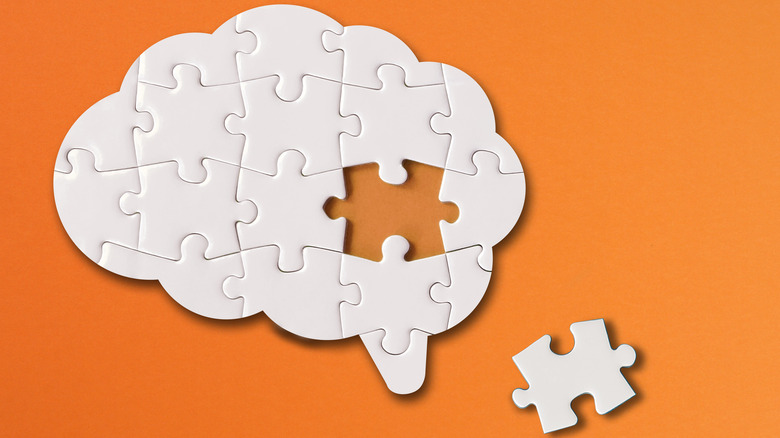The Most Common Causes Of Memory Loss
Because of our super busy and stressful routines, it's normal to forget trivial things like where we placed the car keys or what we had for breakfast or dinner last night. However, if you have dramatic memory loss where your memories fail to come back to you, or you start forgetting important information, like your home address or loved ones' names, it may indicate a more serious neurological issue (per Medline Plus).
Research conducted in 2018 that was published in the Morbidity and Mortality Weekly Report suggested that a majority of Americans experience signs of memory loss once they hit 45 years old (per HealthDay News). In fact, 1 in every 9 people in the US has memory issues in their mid-forties. Various factors are responsible for causing a gradual memory decline, including age, progressive neurological diseases, mental distress, and more. It's critical to recognize the initial symptoms of serious memory loss so proper caregiving and treatment plans can begin at the right time.
What are the common reasons for memory loss?
Sleep deprivation can result in cognitive decline, according to a 2020 research published in Learning & Memory. People who sleep late and stay awake in the later hours of the night struggle to stay alert during the day. Additionally, their brains often lack the time to go through restorative processes to refresh their cognitive points. As a result, you may experience difficulty in retaining integral information.
The National Institute on Alcohol Abuse and Alcoholism also reports a connection between excessive drinking and memory loss. It explains that alcoholism causes physical changes in the size of the brain's neurons. These structural changes have a negative impact on the person's memory, and as a result, they may struggle with both short-term and long-term memory decline.
You may also experience forgetfulness because of oxygen deprivation in the brain, a condition known as cerebral hypoxia. This may lead to a lack of focus, problems with remembering information, and difficulty in making decisions. If the brain hypoxia is severe, the patient may never fully recover. However, if it's mild, there's a chance of the memories coming back, per the National Institute of Neurological Disorders and Stroke.


